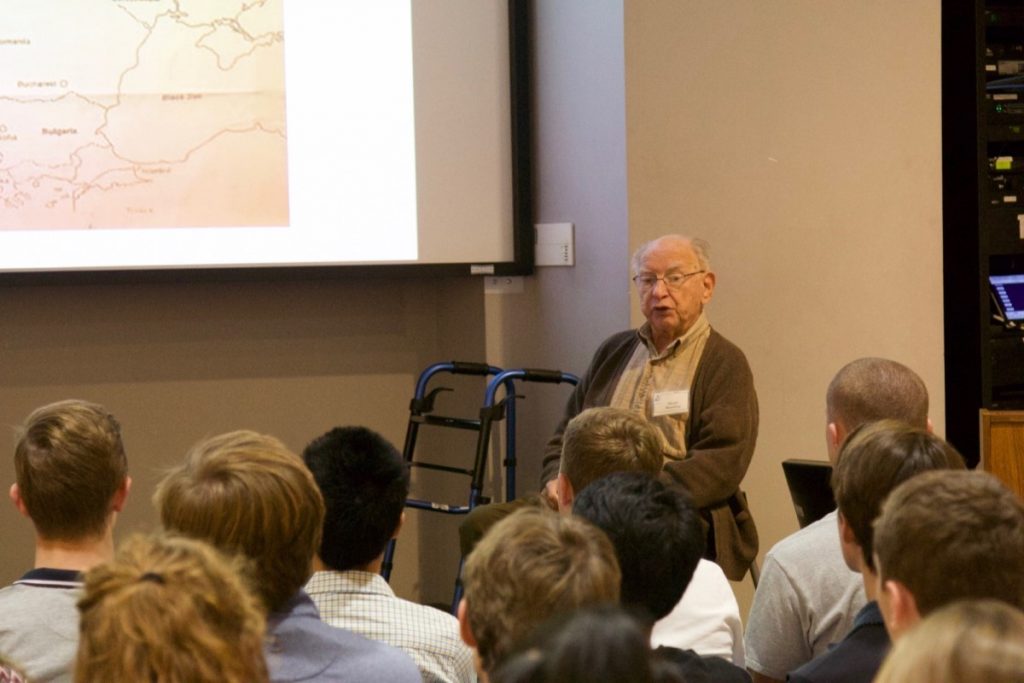Sophomores in the Accelerated 20th Century World History class took a field trip to the St. Louis Holocaust Museum and Learning on Thursday. The visit offered students a closer look at the impacts of World War 2, which they are currently studying. The 35 students explored the museum through docent-led tours, heard the story and perspective of a Holocaust survivor, and engaged in a learning activity on the Lodz Ghetto developed by retired MICDS faculty member Andrea Brownstein.
As they toured the museum, students learned about the rise of the Nazis in Germany and the build up to the war, including how the Nazis used racism to carry out the Holocaust. Shreya Mehta `20 and Hadley Cooper `20 remarked «We greatly appreciate the Holocaust Museum here in St. Louis. From our visit, we learned in great detail what happened during this devastating time. We were so lucky to meet a Holocaust survivor and hear about his experiences firsthand. We highly recommend this museum experience to anyone who hasn’t visited.»
Mendel Rosenberg, the Holocaust survivor who addressed the group, shared his firsthand account of life in a Lithuanian ghetto. Just 13 years old when his family entered the ghetto, Mr. Rosenberg spent four years living under the Nazis; after the ghetto he was sent to several concentration camps, including Dachau. By the end of the war, approximately 99% of Lithuania’s Jewish population had been eliminated as a result of the Holocaust. Mr. Rosenberg spoke of his constant fears during the four years living under the Nazis. Disease plagued both the ghetto and the concentration camps, and hunger remained a constant issue because Jews were given insufficient rations. Mr. Rosenberg’s father and brother were killed by the Nazis in horrific fashion, and he was separated from his mother. After surviving one of the most awful experiences imaginable, Mr. Rosenberg relocated to an American zone displaced persons camp at war’s end. There he learned that his mother had also survived and was living in the Russian zone. The two moved to the United States not long after being reunited, settling in Ohio where they had relatives. Although Mr. Rosenberg spoke five languages already, he learned English, earned his high school diploma, served in Japan as a member of the U.S. Army, and became a U.S. citizen. Mr. Rosenberg moved to St. Louis in the 1950s to continue his successful career in the window manufacturing industry. Once here, he married and raised a large family.
In speaking to the Upper School students, Mr. Rosenberg offered three pieces of advice. First, he emphasized that voting is a privilege and encouraged them to vote as regularly as possible once they turn 18. Second, Mr. Rosenberg advised the students to seek out educational opportunities and stay in school as long as possible. Finally, he urged them to pick a future path that they enjoy, suggesting that this is the key to a life well-lived.


